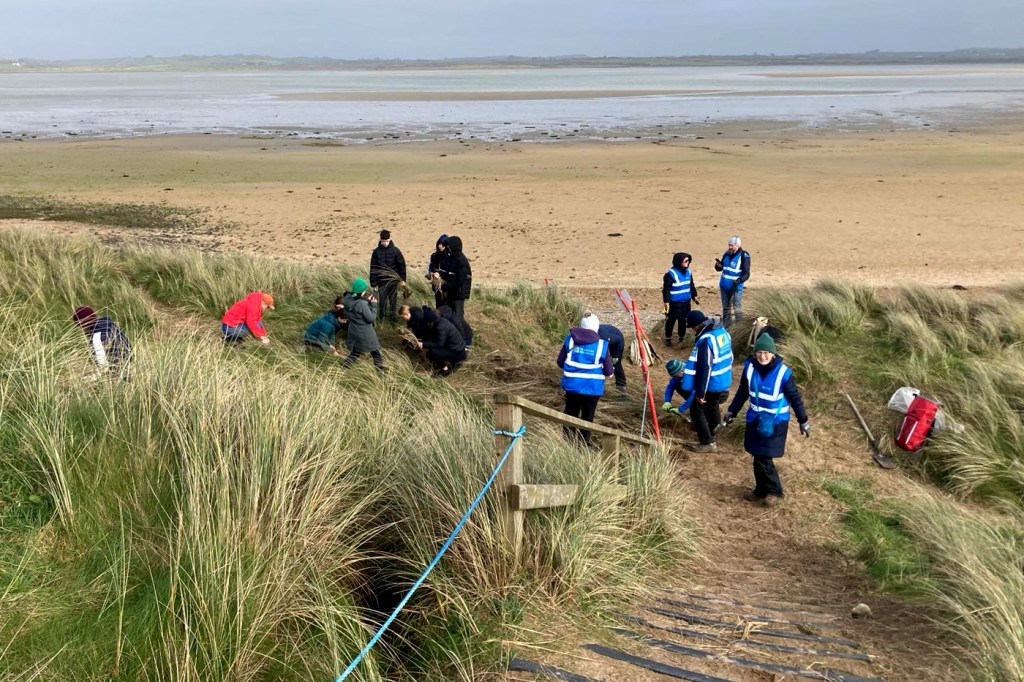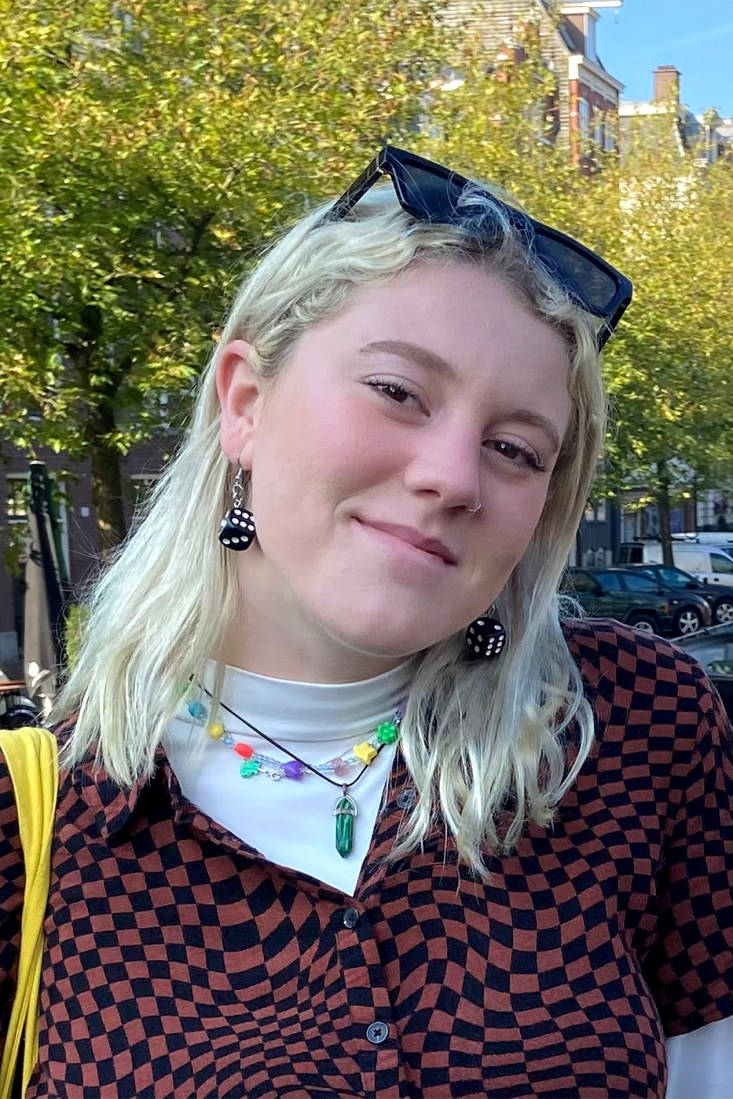Inspecting seagrass on the coast of Ireland, Northeastern co-op just ‘can’t sit idly by’
A co-op in Ireland gives a Northeastern student an opportunity to do environment protection work abroad.

Northeastern University third-year student Maya Galante did not know what seagrass was before she started her co-op in Ireland in January. Since then, she’s spent time on the seacoast near Dublin, inspecting these flowering plants that grow in shallow, sandy coastlines underwater.
Galante helped the environmental group Coastwatch prepare its annual seagrass survey that examines whether human activities such as pollution have had an impact on these underwater plants or on the wildlife habitat.
“We would meet up and we would go to one of those beaches to the north of Dublin where seagrass is found and map it out and record how it’s looking,” she says.
When she is not in the field, the environmental science and international affairs student creates data-based geographical maps or participates in meetings and events at Coastwatch that is a member of the international network of environmental groups, Coastwatch Europe, based in Dublin.

Coastwatch works with local groups and individuals on protecting wetlands, raising public awareness of their value and teaching people practical ways to save them.
“Climate change is the most important issue in the world right now, and if I am not doing something to contribute to it, then what am I doing with my life?” she says. “I spend so much time out in the world and in nature appreciating it that I can’t sit idly by.”
In late January, Coastwatch hosted a big event on seagrass protection, and Galante did a lot of planning for the event.
“That was something that I found out I was really good at and really interested in,” she says.
Her supervisor encouraged her as the only American on the team to prepare and give a presentation on the seagrass legislation in Massachusetts. Galante found out that Massachusetts has a good grasp on protecting seagrass, she says, which is something Ireland is still struggling with.
“Hence why we were doing all this research and policy writing and brainstorming for Ireland,” Galante says.
The co-op also introduced Galante to the concept of citizen science, she says, when volunteer citizens help out with research, collecting data and surveying the areas they are passionate about. The results are subsequently presented to the government, she says, which is a big part of what Coastwatch does.
“They have a stronger sense of if you are passionate or have a background in this specific idea, you have a stronger ability to take that and go to the government about your issues,” Galante says about Irish people.
Featured Posts
When the Irish parliament, Dáil Éireann, held a hearing session for the new legislation that would regulate agricultural and wastewater runoff, Coastwatch presented information on how nitrates used in farming can affect wildlife and biodiversity on the coasts.
“I prepared all of the research for what the representatives for Coastwatch were going to bring to Parliament,” Galante says. “I was happy to provide what they needed and that my ideas were listened to.”
For Earth Day on April 22, Coastwatch is planning to sample the types of cutlery different food businesses offer to their customers. A number of single-use plastics such as cutlery are banned in Ireland following a European Union directive, but Coastwatch is not certain all retailers stopped using them, Galante says.
“I suggested to my boss that it would be a good idea to track down where the single-use plastic is coming in and how some of the places are getting that and how we can regulate that,” she says.
Representatives of the Environmental Protection Agency of Ireland confirmed that import of the single-use plastics was the problem, Galante says.
“If we hit it right at the beginning of [the cycle, when] it’s not allowed to even come into the country, then that would be great,” she says.
Her favorite part of the co-op, however, has been the opportunity to talk to different kinds of people, from colleagues to volunteers to representatives.
Galante says she is excited that she is able to have the combined environmental science and international affairs major at Northeastern.
She fell in love with Northeastern, she says, as soon as she and her mother got out of a subway train in the middle of the Boston campus.
“I was like, ‘OK, Mom, we don’t even have to go look at the other schools,’” she remembers saying to her mother.
Galante did her first co-op at an urban farm in Boston, where she was able to get dirty, sell produce and do administrative work.










